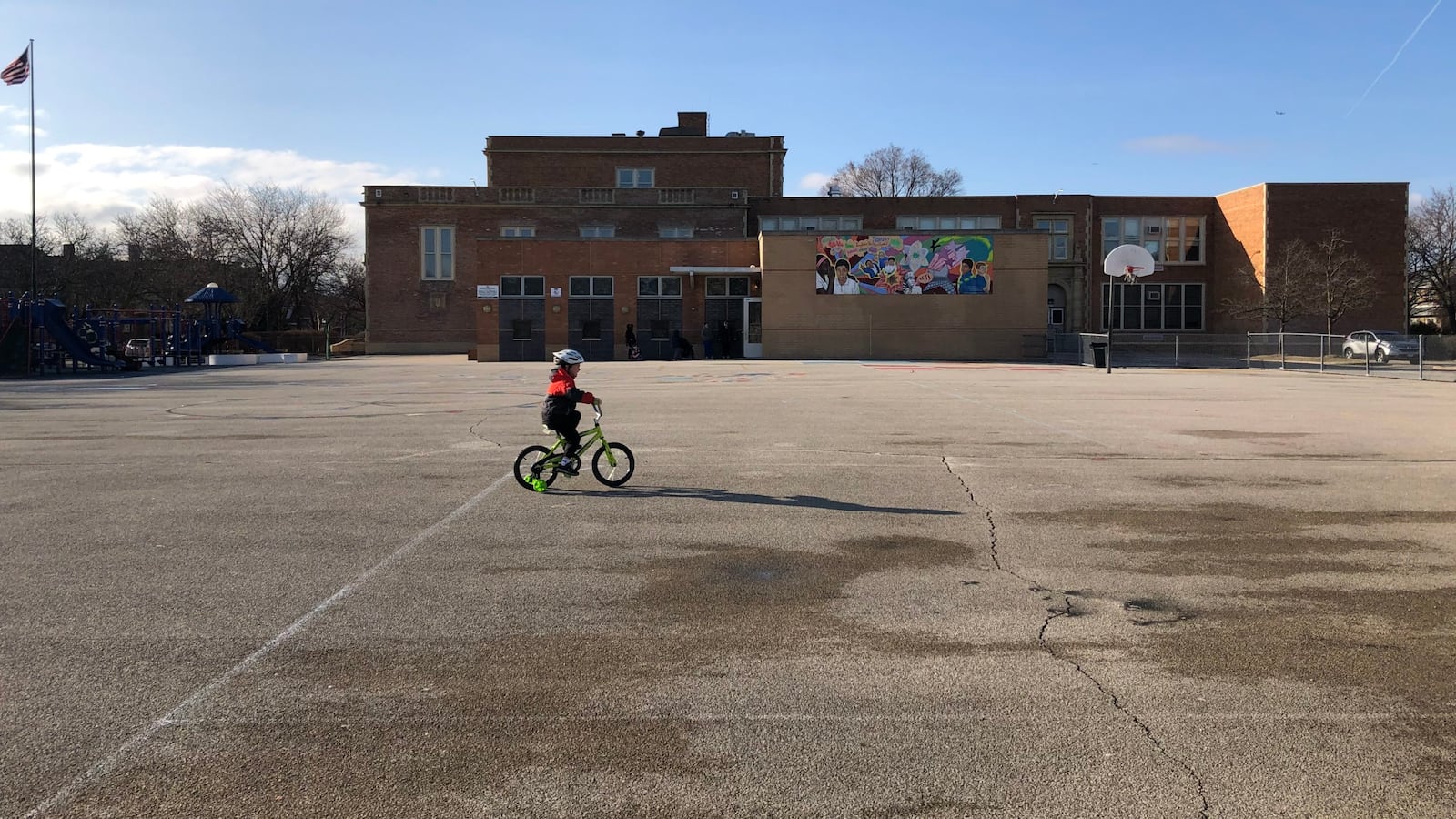Illinois schools will stay closed at least through the end of April, amid a rise in coronavirus cases, Gov. J.B. Pritzker said Tuesday.
The order includes Chicago Public Schools, which previously had announced a closure through April 20.
The governor extended the school closures as part of an extended stay-at-home order, which he plans to sign as part of an emergency declaration on Wednesday.
He stopped short of saying for certain that students won’t return to schools this spring.
“It’s not the school year you bargained for, and I’m terribly sorry for that,” Pritzker acknowledged Tuesday, speaking to the disruption to education and milestone activities like proms and graduations. “But amidst these dire circumstances I want you to know there’s plenty of people to learn from and there are plenty of reasons to hope.”
Extending the school closures was necessary, he said, as the number of confirmed cases rise. “If we can end these orders earlier, I’ll be the first one to tell you when we can start to make strides toward normalcy again. But that time is not today.” Trying to keep residents safe, he added, is “the one goal I will put above all others every time.”
The extension of school closures comes as coronavirus cases rise across the state, to 5,994 and 99 deaths as of Tuesday.
As of Monday, seven U.S. states had closed schools for the rest of the school year and another four had issued blanket closures “until further notice.”
Among states, Illinois had one of the shortest initial school closure windows with an original end date of April 8.
Late last week, the state school board released a set of new rules to help govern remote learning. Students will not be penalized for the closures, the governor said Tuesday.
“Students are going through a situation through which they have no control,” he said. “Our first response must be empathy.”
Districts across the state have scrambled to put together remote learning plans, but the crisis has underscored a stark reality: That the majority of Illinois districts are not prepared to fully implement e-learning and are hamstrung by a lack of Internet access, electronic devices, and online curriculum and training for teachers.
Earlier this week, Chicago Public Schools released a first look at its remote learning plan it says will go into effect April 13.
Chicago has said it will soon distribute up to 100,000 devices to make its new remote learning plan a reality, but officials have put it plainly: The city is not prepared to implement a full e-learning strategy, and so efforts will combine technology-based lessons and paper-based lessons.
The state school board has said that school districts must provide students with digital and non-digital access to educational content and has given districts the flexibility to extend their school year, if they so choose.
But that’s not a likely option for many districts, since they tend to contract with teachers for just the school year and it would cost significantly more to extend those contracts.
“It will be self-limited because districts won’t be able to run it and pay for it,” said Dan Montgomery, the president and chief operating officer of the Illinois Federation of Teachers. In addition to salaries, keeping schools open longer would mean added transportation, energy, and other costs associated with running schools.
“Could some districts do it?” he asked. “There are some well-resourced districts in suburbs that have a few months of operating income saved, but I don’t think we’re going to see a lot of that.”
Samantha Smylie contributed reporting.

